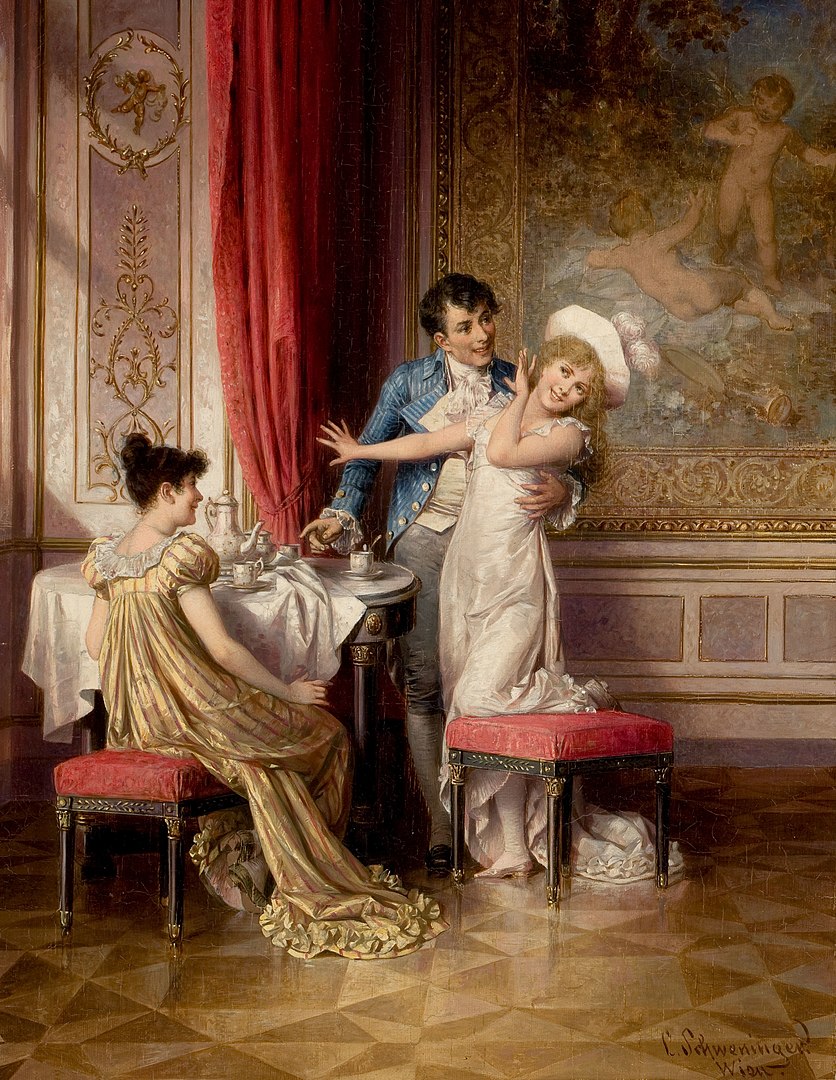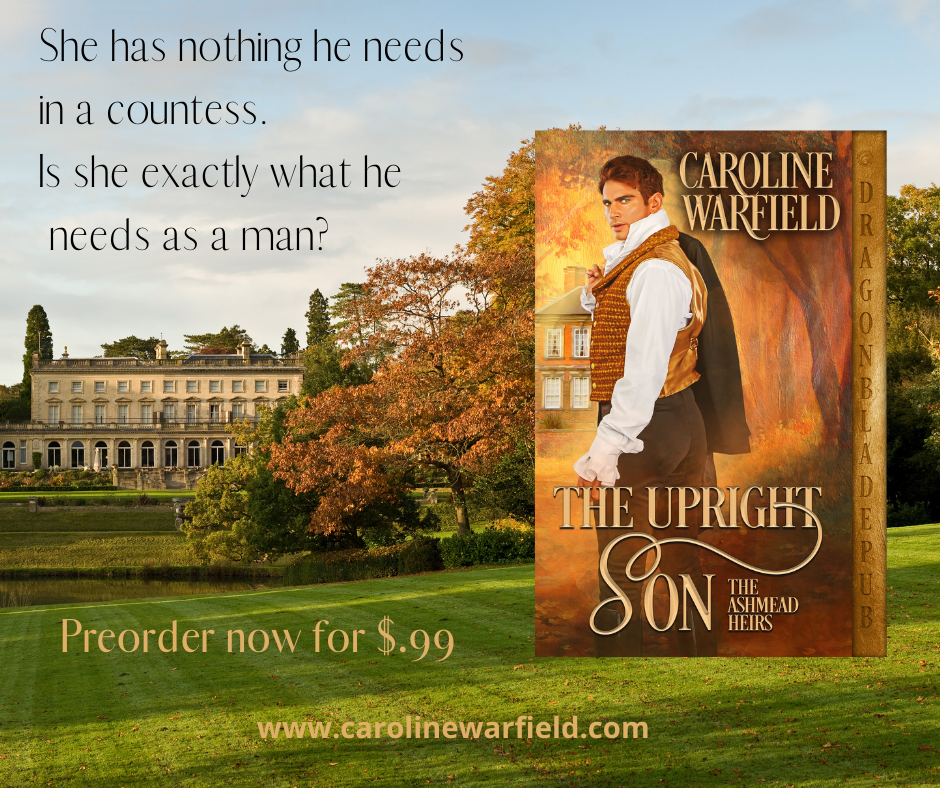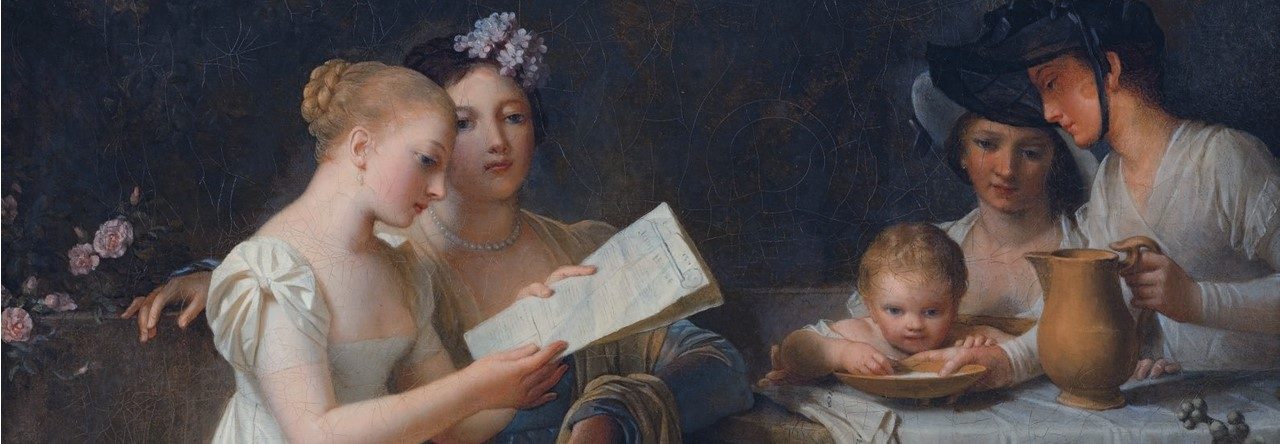My dear Mr. Clemens,
I have the distinction of attending a most exclusive house party at Clarion Hall in Ashmead, hosted by the Earl of Clarion with his sister, Mrs. Morgan—she who was once Duchess of Glenmoor—serving as hostess. Much of London vied for invitations, and ours was obtained only by dint of my longstanding friendship with none other than the Marchioness of Danbury, patron of the event. The usual

Clarion Hall
entertainments have been on offer but I quickly realized that all of this forced conviviality is in the service of politics, of all provoking and boring things. I note the attendance of the Home Secretary himself along with his closest cronies including the Duke of Awbury. I personally have always found Awbury a bit too high in the, well, instep, for my comfort. The man believes himself superior to most mortals except perhaps the Prince of Wales, and he disapproves of Prinny, too. It is all most disappointing, but I digress.
What is most interesting to your dear readers, of course, is the question of the earl’s marital aspirations. For weeks the most frequent on-dit in London would have it that, while the excessively proper earl had finally bent sufficiently to host his peers, he had no intention of looking for a wife, being content to mourn his first spouse dead these six years. Families with daughters to puff off, for the most part, stayed away.
 You may understand, then, dear Sir, why I am aflutter with excitement. One could ignore the handful of persistent mamas who inserted ambitious daughters into the party. An unattached earl—particularly one as attractive (dare I say it?) as the earl—is a marital prize they cannot ignore. One can hardly blame them, but one can ignore them. I say that because it quickly became clear that Mrs. Morgan had marshaled the ladies of the family–regrettably not all of them legitimate members—to depress those ambitions. No amount of sprained ankles, lost wandering into the bachelor bedrooms, rearranged seating charts, or manipulated teams for games escaped the vigilance of the earl’s female relatives. I was ready to believe that he actually was not in search of a wife. Almost.
You may understand, then, dear Sir, why I am aflutter with excitement. One could ignore the handful of persistent mamas who inserted ambitious daughters into the party. An unattached earl—particularly one as attractive (dare I say it?) as the earl—is a marital prize they cannot ignore. One can hardly blame them, but one can ignore them. I say that because it quickly became clear that Mrs. Morgan had marshaled the ladies of the family–regrettably not all of them legitimate members—to depress those ambitions. No amount of sprained ankles, lost wandering into the bachelor bedrooms, rearranged seating charts, or manipulated teams for games escaped the vigilance of the earl’s female relatives. I was ready to believe that he actually was not in search of a wife. Almost.
The arrival of Lady Estelle Wilton in the company of her grandparents, the Marquess and Marchioness of Wilbury, was an entirely different thing. A perfect lady, she has resorted to none of the shenanigans the other hoydens have attempted and yet, she has monopolized much of the earl’s attention. A man as reserved and proper as the upright earl would certainly seek such refinement in a wife. A man with political ambition would no doubt seek one with a pedigree as illustrious as that of Lady Estelle who would without doubt make a superior political hostess. As if all that weren’t transparent enough, my maid confided that a footmen told those assembled in the servants hall that the two of them rode out today with only his nominal company. Furthermore, they rode to Willowbrook, the earl’s former home and spent over an hour inside—sans footman or other chaperone.
In short, it appears we anticipate a happy announcement. I write now so that you may have the news first, and get the jump on your competition. You may coyly print:
Has a certain house party in the midlands brought marital aspirations to the Earl of C__? A certain Lady E__ W__ appears to have won the race to capture his attention. We expect wedding bells soon.
I have no doubt you will be merely reporting the truth, though of course you will protect the lady’s name. There has, alas, also been some foolish gossip about Lady Delia Fitzwallace, Awbury’s former daughter-in-law. If she weren’t a widow and a matron one might call her a hoyden as well. She lacks the refinement one would expect in an earl’s bride. Awbury himself is quite critical of her easy ways. Her looks are too coarse for a countess—her skin and hair reflect an island heritage—even as her manners show her family origins in trade. No, she would not do at all, and the earl can be relied on to know it. I’m sure of it.
Your devoted friend,
Alvira, Lady Eaton
About the Book



Leave a Reply